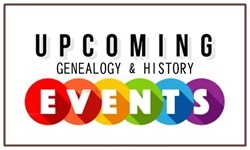Phonetically Speaking
For those of you who have been reading my blog for at least the last couple of weeks, you’ll know that I recently visited Finland for a holiday to meet family and see the places where my ancestors came from.
One thing I found when being with my relatives, was that all the names and places I knew from correspondence with family and various Finnish archives, I had been pronouncing very wrong. I had simply seen them written down, and gave them my own Australian-version of the pronunciation as best as I knew without ever hearing it.
Now that I’ve heard the names and places said in Finnish, it’s made me realise how easy someone simply listening to it said could give a whole different spelling.
One thing I did while I was in Finland was create a listing of names and places with both the proper Finnish spelling, and then I wrote each with the pronunciation as it sounds in Australian-English, which was quite often VERY different.
An example of this is one of my family names, BACKBERG. It seems simple enough, Back (as in the back of something), and Berg (like an iceberg). But when it’s said in Finnish it is actually pronounced BACH-BERRY. Now had I simply ‘heard’ the name, I would have had no idea that is actually spelt Backberg. And the same goes for place names too.
Add into the mix all of those who emigrated to another country, and you have foreign names and places, said with an accent and you have the perfect recipe for some very creative spelling.
It’s not news for researchers to find alternate spellings on documents. In fact it would be far more unusual if you didn’t. But having to write the names and places out phonetically has made me take a step back and think just how it could be written to get the right sound, and it actually reminded me of being back in Primary School and writing words as you heard them. Anyway I found that it’s been a very interesting and useful exercise. Try it yourself, you might just be surprised.





What a wonderful, but simple idea.
what great advice and a great experience. I’ve often used Google Translate for translations but just tried a few of my German and French names and places then played the audio in their OWN language – then compared that to the English audio. Not as good as being with people whose native language is relevant but certainly gives you food for thought when searching for ancestral names and places. Yet another reason I’m so looking forward to the Unlock The Past ‘Researching Abroad’ Seminar – and particularly Dirk Weissleder. You can catch the details at http://www.unlockthepast.com.au/events/researching-abroad-finding-british-isles-and-european-ancestors
A great example to show new researchers, who are so sure the name they are researching is only spelled in a particular way and are unwilling to accept even a slight change in spelling which may also have changed the pronunciation, and to show some of the ways the change has happened.
I have included your blog in INTERESTING BLOGS or GENERAL INTEREST in FRIDAY FOSSICKING at
https://thatmomentintime-crissouli.blogspot.com/2017/07/friday-fossicking-21st-july-2017.html
Thank you, Chris